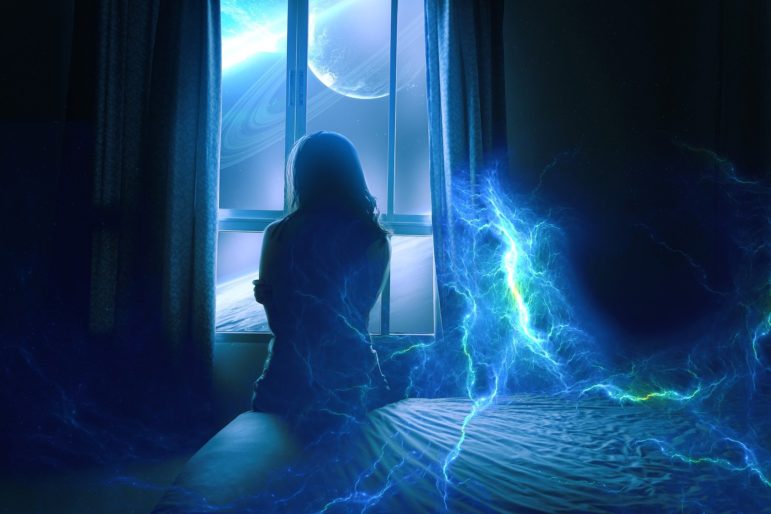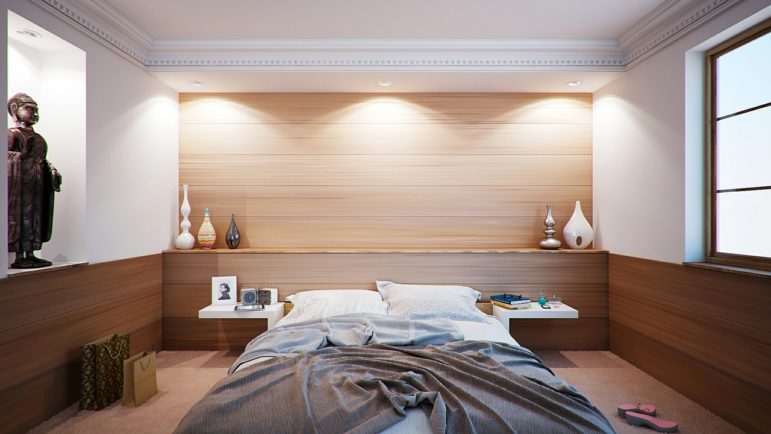TWH – Marie Louis is a nurse and amateur herbalist in Miami Shores. “I’m still learning,” she says. She takes valerian root daily. “I didn’t take it before the pandemic, but I don’t think I could sleep without it.” Marie says that she never suffered from insomnia but that it’s different now. “It became harder and harder to sleep.”
She’s not alone. Earlier this year, researchers reported that 14 months of a pandemic have left us with unhealthy weight gains, increased use of alcohol, and sleep debt.

Image credit: Ajay kumar Singh – Pixabay
Even as the intensity of the pandemic subsides in many developed nations, sleep researchers are finding that the many months of dissolving work-life boundaries, increase in screen time and lack of exercise are together conspiring to disrupt sleep patterns in the longer term. The result has been an increased prevalence of sleep disorders.
Those sleep disorders cover a range of ailments and all of them are on the increase.
One survey study in Italy reported in The Lancet, found that 57% reported poor sleep quality, 32% acute anxiety, 41% high distress, and 7% reported post-traumatic symptoms of stress. In the United States, some 67% of Americans are experiencing disrupted sleep patterns.
The researchers noted that, “The hypothesis is that fatigue, sleepiness, and REM sleep behaviour disorder might be related to SARS-CoV-2 infection per se, whereas insomnia might be related mainly to confinement, anxiety, and other psychosocial factors.”
The disruption to sleep is not solely from a psychological source such as anxiety or worry. Undiagnosed and untreated sleep apnea is also rising. Sleep apnea refers to a potentially dangerous set of sleep disorders where breathing repeatedly stops and starts that is typically accompanied by loud snoring. Like psychological interruption of sleep, the COVID-19 pandemic has affected patient access to medical practices globally, and thus delaying access to sleep apnea screening and therapy procedures. Sleep apnea is also worsened by weight gain, another pandemic consequence.
Speaking with the American Psychological Association, Athena Akrami, PhD, a neuroscientist at University College London said “Once sleep is disrupted, it can impact mental and physical health, which may in turn cause further sleep disruption.”
She added that sleep disturbances can be insidious noting that “A vicious cycle may form that is very difficult to diagnose and treat properly.”
According to the American Sleep Association, adults need between 7-9 hours of sleep every night, teenagers need about 8 – 10 hours, children 6-12 hours, with younger children and infants needing as much as 16 hours of sleep daily.
Susan Rubman, PhD, a behavioral sleep psychologist and assistant professor of clinical psychiatry at the Yale School of Medicine said, “It makes perfect sense that sleep complaints are on the rise right now, because all of the stay-at-home conditions we experience throughout the day are exactly the factors that we know can affect sleep.”
Rubman said that stressful situations, lack of exercise, and lack of socializing all contribute to “trouble falling asleep or staying asleep to early wake-up times, poor sleep quality, disrupted sleep cycles, and vivid dreams or nightmares.”
But psychologists say that establishing a healthy sleep routine is possible, and it comes with creating and honoring clear and effective boundaries. One seemingly obvious recommendation is to keep the bedroom as a sacred space for sleep and sex.

Image credit: Ferenc Keresi – Pixabay
“The good news is there are treatments that work,” said psychologist James Maas, PhD, a retired professor at Cornell University and an international consultant on sleep speaking with the American Psychological Association. “For many of us spending time at home, this is a wonderful opportunity to regularize our sleep patterns and reap all the benefits that stem from a good night’s rest.”
Maas said a good night’s sleep begins during waking hours with a good cycle, then setting up a routine we can stick with including “exercise, regular mealtimes, and exposure to sunlight also helps calibrate the body’s circadian rhythm—as does avoiding caffeine within 10 hours and alcohol within 3 hours of bedtime.”
Exercise seems to be especially critical and light exercise is just as effective. Like Hippocrates – the Pagan “Father of Western Medicine” – asserted “walking is the best medicine” and is still a non-pharmacological and time-honored intervention that can help people fall asleep up to 13 minutes faster and stay asleep longer.
Exercise is effective in reducing sleep complaints and equally as effective as prescription hypnotics.
Researchers also recommend eliminating the use of screens, including televisions, before bedtime. The National Institute for Occupational Safety and Health notes that back-lit devices like cell phones, tablets, and computers emit short-wavelength enriched light or “blue light” which interfere with sleep induction.
Darkness is also important and somewhat more difficult to come by in the Northern hemisphere as we approach the June solstice. But like Hypnos, the ancient Greek personification of sleep, creating the bedroom’s sacred space includes shielding it from sunlight and moonlight. Dark spaces help us reset to natural sleep patterns.
Sleeping with loved ones might also help. Researchers looking at this question found “The scent of another person is emotionally evocative.”
They added, “We found that the exposure to the scent of a romantic partner overnight leads to improved sleep efficiency. Participants in our study experienced an average of more than nine minutes of additional sleep per night when exposed to the scent of their partner.”
Some research has shown that some supplements like melatonin, valerian, and chamomile may help insomnia and induce sleep.
However, the research typically concludes that more evidence is needed before clinical recommendations can be offered. They also consistently said to see a physician before taking any supplements, even seemingly harmless herbs, especially if taking other medication.
Sleep specialists were unified about one thing: if insomnia persists, see a specialist. Marie Louis agreed.
The Wild Hunt is not responsible for links to external content.
To join a conversation on this post:
Visit our The Wild Hunt subreddit! Point your favorite browser to https://www.reddit.com/r/The_Wild_Hunt_News/, then click “JOIN”. Make sure to click the bell, too, to be notified of new articles posted to our subreddit.

